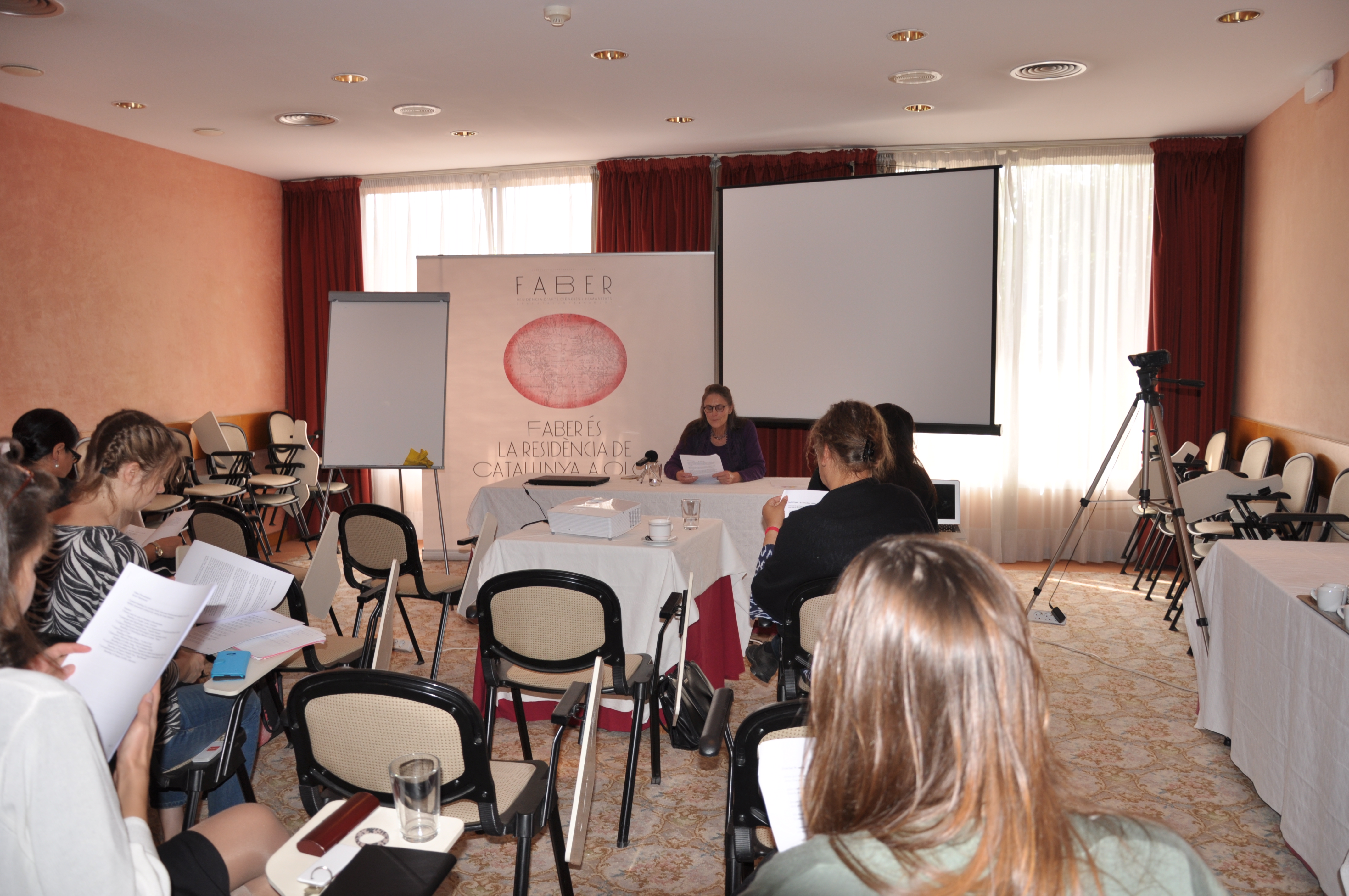Collective residencies / FEMINISMS III / Olot
EDMÉ DOMÍNGUEZ
From Sunday, 12 January 2020 to Saturday, 18 January 2020

Bio
Edmé Domínguez R. (born in Mexico, resident in Sweden) is Associate Professor (docent) in Peace and Development Studies. She has a BA in International Relations from El Colegio de México and a PhD from the Institut d’Etudes Politiques (IEP), Paris, France. She has been working at several universities in Mexico, USA, Spain and Sweden. At present she works as lecturer in Latin American Studies, Gender studies and Global Political Economy at the School of Global Studies, University of Gothenburg. During several years she worked and published on the issues of Soviet foreign policy towards Latin America but since the beginning of the 1990s she has been working on the social and gender implications of NAFTA for Mexico, on gender issues related to citizenship, political participation, labour, transnational activism and free trade agreements particularly in the case of Mexico, El Salvador and Bolivia. Her latest publications (2018-19) refer to women as municipal councilors in Bolivia, to labour, gender and globalization in the case of Mexico and El Salvador, to gender backlashes in the case of Latin America and to the gender perspective of trade agreements in the case of the EU-Mexico’s relations.
Project
During my stay at FABER I’ll work on the chapter me and another Mexican colleague, Paloma Bonfil, are contributing to the edited book: Still) Minding the gap: Storying interventions against the gender gap from a global perspective. Our chapter has the title: Reproduction of the gender gap? Parity attained at the formal level-inequity reproduced at the daily local level: The case of Mexico and Bolivia.
This chapter would try to address the challenges women face in countries where this parity at the national (and sometimes even at the local level) is already attained. We will present and compare two countries: Mexico and Bolivia. In the case of Mexico, in the 2018 elections women’s share in the lower legislative chamber went up to 49,2% and to 51% in the higher chamber. However, political violence and harassment is still denounced and extremely frequent at all levels of power. In Bolivia, political developments (the arrival to power in 2006 of an alliance of social movements headed by an indigenous leader who promised ambitious social reforms) and women’s mobilisations have favoured an advanced process of institutionalisation of gender equality during the last years. Women’s political representation has changed dramatically: In the 2014 national elections, women obtained 49% of the parliamentary seats. Moreover, at the national government level since 2006 about 50% of all ministries have been led by a woman, several of them indigenous. In 2015 at the municipal elections’ women councillors went from being 43% in 2010 to 51% of the municipal assemblies. My colleague, Paloma Bonfil, as my ‘critical friend’ to this chapter would contribute with her own experiences of this kind och challenges in Mexico, among indigenous women.

